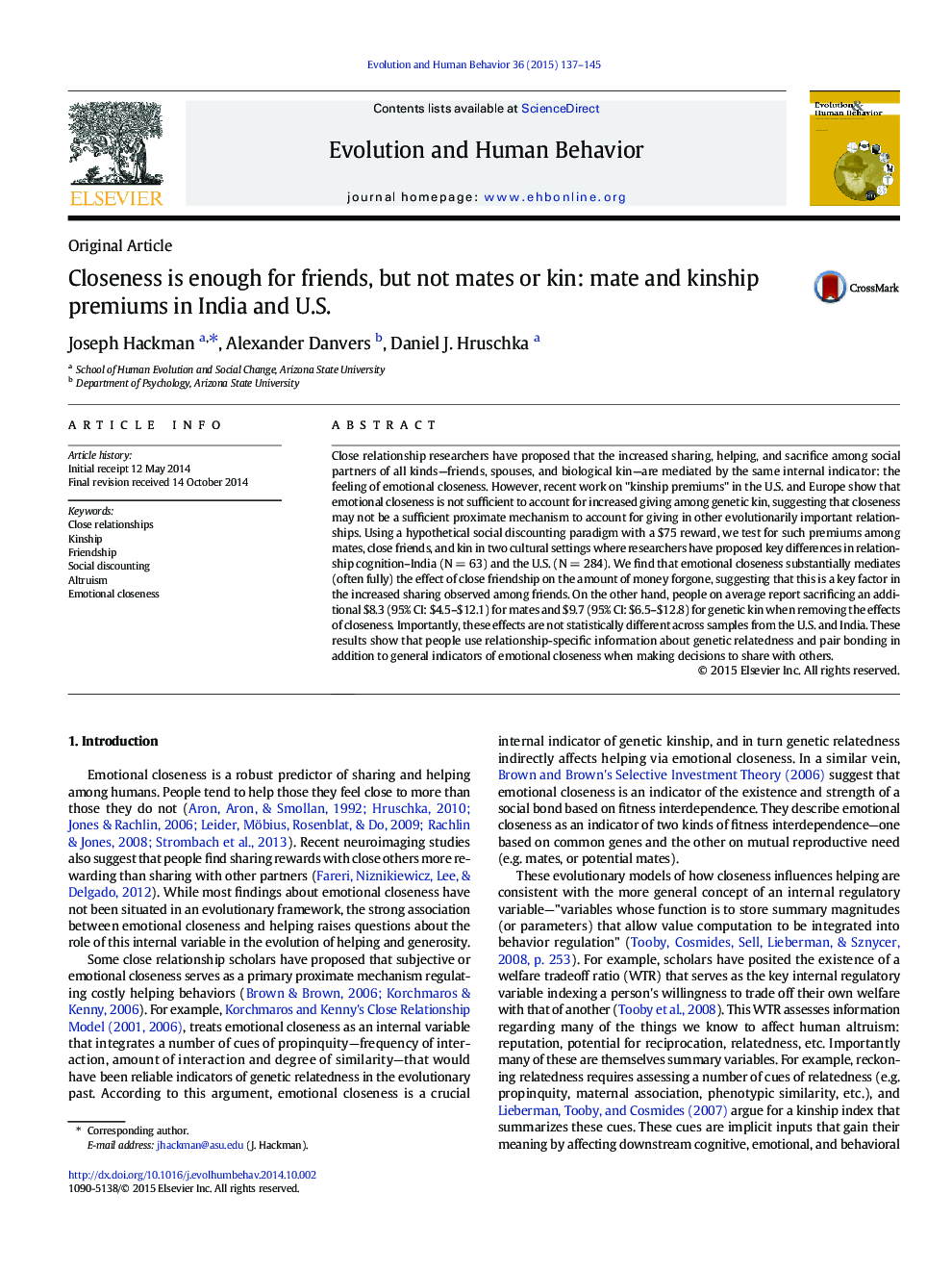| کد مقاله | کد نشریه | سال انتشار | مقاله انگلیسی | نسخه تمام متن |
|---|---|---|---|---|
| 10463995 | 925446 | 2015 | 9 صفحه PDF | دانلود رایگان |
عنوان انگلیسی مقاله ISI
Closeness is enough for friends, but not mates or kin: mate and kinship premiums in India and U.S.
ترجمه فارسی عنوان
نزدیک بودن به اندازه کافی برای دوستان است، اما نه همسر یا همسر: حق بیمه همسر و وابستگی در هند و ایالات متحده
دانلود مقاله + سفارش ترجمه
دانلود مقاله ISI انگلیسی
رایگان برای ایرانیان
کلمات کلیدی
روابط نزدیک، خویشاوندی، دوستی، تخفیف اجتماعی، بی نظیری نزدیکی احساسی،
موضوعات مرتبط
علوم زیستی و بیوفناوری
علوم کشاورزی و بیولوژیک
بوم شناسی، تکامل، رفتار و سامانه شناسی
چکیده انگلیسی
Close relationship researchers have proposed that the increased sharing, helping, and sacrifice among social partners of all kinds-friends, spouses, and biological kin-are mediated by the same internal indicator: the feeling of emotional closeness. However, recent work on "kinship premiums" in the U.S. and Europe show that emotional closeness is not sufficient to account for increased giving among genetic kin, suggesting that closeness may not be a sufficient proximate mechanism to account for giving in other evolutionarily important relationships. Using a hypothetical social discounting paradigm with a $75 reward, we test for such premiums among mates, close friends, and kin in two cultural settings where researchers have proposed key differences in relationship cognition-India (NÂ =Â 63) and the U.S. (NÂ =Â 284). We find that emotional closeness substantially mediates (often fully) the effect of close friendship on the amount of money forgone, suggesting that this is a key factor in the increased sharing observed among friends. On the other hand, people on average report sacrificing an additional $8.3 (95% CI: $4.5-$12.1) for mates and $9.7 (95% CI: $6.5-$12.8) for genetic kin when removing the effects of closeness. Importantly, these effects are not statistically different across samples from the U.S. and India. These results show that people use relationship-specific information about genetic relatedness and pair bonding in addition to general indicators of emotional closeness when making decisions to share with others.
ناشر
Database: Elsevier - ScienceDirect (ساینس دایرکت)
Journal: Evolution and Human Behavior - Volume 36, Issue 2, March 2015, Pages 137-145
Journal: Evolution and Human Behavior - Volume 36, Issue 2, March 2015, Pages 137-145
نویسندگان
Joseph Hackman, Alexander Danvers, Daniel J. Hruschka,
